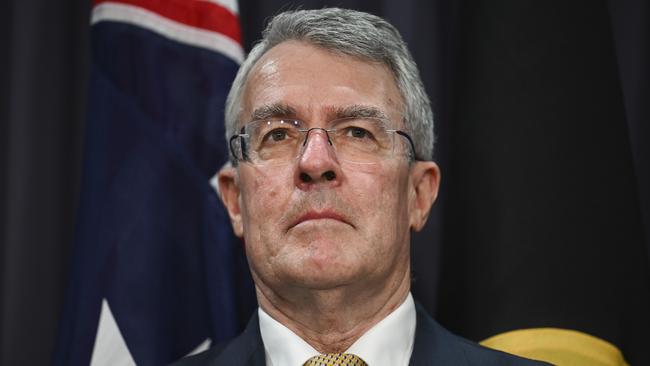Misinformation claims fake news

But, throughout the contest, those on the Yes side have been quick to claim the No camp has been involved in spreading misinformation. Some in the media have been fooled too easily. Interviewed on ABC radio, Anthony Albanese has been asked repeatedly about misinformation on the voice and whether he was concerned about “the sort of conspiracy theories and Americanisation of our politics”. In a podcast with the Guardian Australia website, the Prime Minister was asked about his concerns about a “misinformation prism”. Mr Albanese had the good sense to say “overwhelmingly, here in Australia our democratic processes do function very well”. But repeatedly, in interviews on the ABC and Sky News, at press conferences and answering questions from listeners on Brisbane’s B105 radio station, Mr Albanese has been quick to raise the issue of misinformation as it pertains to the voice.
Federal Attorney-General Mark Dreyfus has accused Peter Dutton of leading the “misinformation and disinformation campaign that is symptomatic of the No campaign”. Leading Indigenous figures in the Yes camp have made similar claims and used the sometimes dubious findings of the non-credentialled RMIT FactLab unit to bolster their beliefs. In an ABC radio interview on Monday, Mr Albanese said the Opposition Leader had asked questions in parliament as a “wrecker about the Indigenous voice somehow advising the Reserve Bank of Australia about interest rates”. He said claims the Uluru Statement from the Heart was more than a one-page document were absurd, as were suggestions the voice would be able to concern itself with changing the date of Australia Day. Claims the voice could take an interest in AUKUS or defence policy more generally also have been dismissed. The problem for Mr Albanese and the Yes team is that none of these claims can properly be considered to be misinformation or disinformation.
Key Uluru statement architect Megan Davis said the voice would speak to “all parts of the government” including the cabinet, ministers and public servants as well as statutory offices and agencies from the Reserve Bank to Centrelink. Sally Scales, a member of Mr Albanese’s referendum advisory group, has said Aboriginal communities should be consulted on aspects of the nuclear-powered subs deal, including where the subs will be docked. Decisions on what the voice will be able to offer advice on will be matters for the voice to decide once it is established. Many who will guide the voice’s decision-making will have an opinion on the date for Australia Day that they may wish to convey to government. On the length of the Uluru Statement, key architects repeatedly have said the document was more than one page but subsequently have disavowed their earlier comments. While it is true these specific issues are not what voters in the referendum will determine, it has become too easy for claims of misinformation to be cast.
This is an issue bigger than the voice referendum. It should be of concern to everybody who values free speech and the right of media to report. This is particularly so given attempts before parliament to control misinformation and disinformation and impose significant financial penalties on social media companies that are judged to have failed to do so. There are many good arguments to better regulate social media companies and the information they allow to be put into the public domain. But the risk of mission creep in which the mainstream media becomes collateral damage at the hands of government cannot be ignored.
Respected former Australian Competition & Consumer Commission chairman Rod Sims has written in favour of greater control of social media. But he rightly makes the point that in many debates people label as “disinformation” views they disagree with. Professor Sims says if someone says, for example, a new law or policy will have a particular consequence, even if others strongly believe it will not, this is usually an example of differing views; it is not misinformation or disinformation. This is why it is important that politicians and media understand what they are talking about. Calling someone with an opposite view racist, or information you don’t like misinformation or disinformation, cannot be allowed to become an accepted norm. Regulatory safeguards are important but they can be no match for politicians or vested interests who want more power to ensure they will always get their way.


Like fake news, claims of misinformation or disinformation have become a default position for politicians and others who do not like to hear a dissenting opinion or to not get their way. If, when the votes are tallied, the voice to parliament fails to attract the necessary majority of votes or majority of states it would be wrong to argue this was because of a campaign of misinformation.